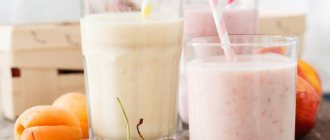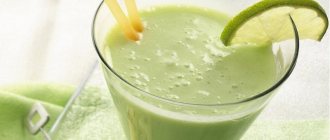I want sweets and flour: reasons: Pixabay Noticed uncontrollable cravings To flour products or sweets? This Maybe testify Not only O harmful food habits, but And O problems V body. Let's figure out why I want to sweet And flour And How to act in such cases.
What is the body signaling?
If a person is in a comfortable psycho-emotional atmosphere, but experiences sudden impulses or a regular desire to eat a cake, brownie, chocolate muffin, or at least a lollipop, it is worth reviewing the diet, daily routine, and consult a doctor.
This is how the body signals a violation.
If you are often drawn to sweets, the reasons may be different: maybe there is something missing, or maybe it’s the onset of illness, an unbalanced diet, or a simple lack of sleep.
Here is a list of some of them:
Physiological factors
First of all, you need to analyze the obvious; perhaps the body itself will tell you the answer:
- diseases;
- irregular meals;
- lack of vitamins B and carbon;
- lack of sleep;
- low-carbohydrate diets/lack of slow carbohydrates in the diet;
- mental fatigue;
- change in physical activity;
- taking medications;
- coffee, cigarettes, alcohol;
- abrupt cessation of cigarettes.
It happens that sweets attract us for no particular reason. So you need to think about whether you are addicted to sugar?
Attention! It has been proven that simple carbohydrates cause addiction and a desire to eat even more sugar.
They treat addiction with willpower, replacing sugar with fruits and dried fruits.
Hunger
Desserts and the sugar they contain are fast carbohydrates that can instantly flow from the intestines to the cells and provide them with energy. Therefore, when we are very hungry, the body may require sweets in order to quickly restore its strength and not waste its remnants on “extracting” carbohydrates from other foods.
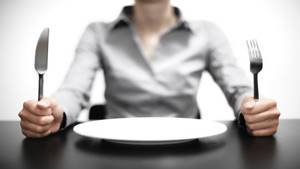
Chromium shortage
Medicine claims that a lack of this element leads to cravings for sweets. It is prescribed to all diabetics. By the way, there is a lot of it in fish: especially in capelin, beef liver, meat
Chromium preparations are also commercially available: dose 40 mg. Sometimes in tablets its content is increased, if there is permission in the package insert, then take it, don’t be afraid. Such a drug is chromium picolinate.
Hypoglycemia. Low blood sugar
This condition is caused by an insufficient amount of carbohydrate foods on the menu, helminthic infestations, and taking certain medications. In case of acute sugar deficiency, the body will want to restore the level using sugar: less energy is required to break it down, and the concentration increases quickly, although not for long.
Hormonal disorders
I often crave sweets and starchy foods due to hormonal changes. If cortisol levels rise significantly, you want desserts because of their ability to reduce anxiety. If the level of progesterone, estrogen or testosterone decreases too much, a person may also be drawn to cakes or ice cream.
Idleness
It is idleness that most often leads to overeating and the destruction of sweets. You are not busy with anything, which means you have no aspirations in life.
The body is rushing about, it is not satisfied, you are not calm. Result : satisfaction in food – sweets. To lift your spirits and not feel so bad in your soul.
Such behavior cannot satisfy anyone. Man is a rational being, which means he needs to strive for something, make mistakes, make mistakes for himself, but be busy. Only this way and nothing more.
Otherwise, all you have left to do is eat sweets and go to bed. This is not life.
Before and after menstruation
Premenstrual syndrome is an increasing number of symptoms shortly before menstruation, including the need for sugar. According to doctors, this is usually due to disturbances in the levels of prostaglandins and progesterone, hormones that have a serious impact on well-being.
Throughout the month, the levels of progesterone and estrogen fluctuate. There are more of them at the beginning, and during the period of ovulation the level of hormones rapidly decreases. In the process of their decrease, women experience migraines, anxiety, and rapid heartbeat. The ovulation period ends, and the level of progesterone and estrogen increases, the symptoms disappear. But the woman experiences a difficult period of ovulation itself, and at this time she craves sweets. The lack of progesterone, which causes cravings for sweets, is to blame for this. During the first few hours, a “dose” of sweets may help, but then the sugar level drops again and anxiety increases.
Thyroid diseases
If the functioning of the thyroid gland is disrupted, changes occur in the hormonal background. It should be taken into account that in those who eat a lot of sweets, pathologies of this organ are diagnosed more often.
When the gland malfunctions, depression often develops and anxiety increases. These symptoms also cause increased cravings for sweets.
Pregnancy and lactation
During pregnancy and lactation, the female body needs a large amount of macro- and microelements, vitamins, and this is one of the reasons why you want sweets, caused by a deficiency of carbon, phosphorus, chromium, and sulfur.
How to normalize the situation and stop abusing sweets?
- The deficiency of chromium is compensated for by unrefined animal and vegetable fats: beef, milk, tuna, pollock, herring, chicken, grapes, beets, grapes, hazelnuts.
- High carbon content is also present in animal and vegetable fats: lentils, potatoes, beets, rice, celery root, legumes, wheat cereals.
- Products containing magnesium: melons, grapefruits, bananas, pumpkin, brown rice, buckwheat, dark chocolate, dried apricots, sea fish, sweet almonds, various dried fruits, garden herbs, seeds.
- Replenish the lack of sulfur with poultry meat, beef, pork, fish, eggs, dairy products, and nuts.
- High phosphorus content is found in garden greens, cereals, vegetables, meat, various types of fish, milk, eggs, and fresh vegetables.
- Tryptophan, which is necessary for pregnant women, is present in dairy products, fish, meat, mushrooms, walnuts, oatmeal, dates, and bananas.
Looking for a reason
When the body constantly feels the need for confectionery, ice cream, sweet drinks or other foods containing sugar, you have to find out what is missing if you want sweets. It is impossible to eliminate the problem on your own, but it is quite possible to evaluate your lifestyle and diet.
The reasons for the constant need for sweets include:
- sleep disturbance and chronic lack of sleep;
- lack of B vitamins;
- hereditary disorders;
- diet;
- psychological problems.
Hormones are substances that are not visible in the body even under a microscope, but they play an important role in the functioning of internal organs. Thus, the hormone leptin is responsible for appetite. When its concentration changes, a person feels a huge craving for sweets. A deficiency of the described hormone occurs as a result of constant lack of sleep.
Cakes and rolls contain B vitamins. If any of these components are lacking, the body begins to subconsciously draw them from sweets. As for genetic problems, they need to be solved only together with a specialist. In medical practice, there are cases when the functioning of the gene responsible for the functioning of the brain is disrupted. As you know, about a quarter of an hour after the start of a meal, the brain receives a signal of satiety. The absence of this is a consequence of genetic disorders.
Important! After long-term diets, especially those with minimal carbohydrate content, there is often a feeling of hunger that can only be satisfied by empty carbohydrates found in sweet treats.
Deficiency of vitamins and microelements
A craving for sweets may indicate a nutritional deficiency. You can understand what is missing in the body if a person constantly craves some kind of dessert. Often, there is no desire for other options.
With a lack of magnesium, you often crave chocolate. You may also crave chocolate if your iron level is too low. I would like to add flour to the diet if there is a lack of nitrogen or fat.
Unbalanced diet, strict diets
This way of eating often leads to a situation where the body receives only one type of nutrient and is severely deficient in others. For example, if you follow a protein diet, your body will be deficient in carbohydrates, so it will force you to eat a cake or chocolate bar.
What elements are missing in the body if it requires sweets?
Nutritionists say that through cravings for sweets, our body communicates an urgent need to obtain “deficient” nutrients and vitamins. To understand exactly what elements your body lacks, a table created by doctors and nutritionists will help.
But even this table does not exhaust all possible options for dessert cravings.
In this matter, it is important not only to take into account the general desire to eat something sweet, but also the foods that you want:
- Dried apricots are a probable vitamin A deficiency. Found in: avocados, melons, peppers, peaches, potatoes, broccoli, eggs, cheese, carrots, liver, fish.
- Bananas have a high need for Potassium (K). Contained in: dried apricots, peas, nuts, beans, prunes, potatoes, figs, tomatoes.
- Chocolate is a possible magnesium (Mg) deficiency. Contained in: pine and walnuts, peanuts, cashews, almonds, buckwheat, mustard, seaweed, oatmeal, millet, peas, beans.
- Flour - probable deficiency of Nitrogen (N) and fats. Contained in: beans, nuts, meat.
Psychological factors

There may be psychological problems:
- stress;
- emotional stress;
- low self-esteem;
- underestimation of others;
- lack of attention;
- subconscious desire for self-promotion;
- the desire to disconnect from problems and experience a feeling similar to the pleasure that arose in childhood when eating such a sweet;
- desire to eat a forbidden product.
to avoid eating sweets due to stress : intimate conversation with loved ones, going to a SPA salon, outdoor recreation, shopping, hobbies, change of scenery . Listen to yourself, do what you have been putting off for a long time: knit a hat, join a club for lovers of Japanese culture, take horse riding lessons, start drawing. This technique relieves stress, promotes an objective assessment of the situation and quickly makes the right decision.
A qualified psychologist will help you cope with a serious problem.
Boredom
When a person has nothing to do, he may unconsciously experience internal anxiety and try to “extinguish” it with chewing movements. In this case, cravings can develop not only for sweets, but also for all other foods that are in the refrigerator.
Depression, emotional anxiety
Often cravings for sweets due to increased anxiety. After eating foods containing a lot of sugar, serotonin is released, which allows you to temporarily feel calm. In addition, the process of eating itself distracts from problems.
With depression, a person often experiences indifference to life. In this state, it is difficult to take care of your health and choose healthy foods. Often there is no energy or desire left to cook. Cakes and pastries help you get a lot of calories quickly with minimal effort.
Lack of love, affection, encouragement
If, in childhood, desserts were used as praise for the child, adults gave candy as a reward for achievement, rewarded with food, or showed care more often through sweets than in other ways, the brain begins to associate sugar-rich foods with positive emotions and feelings. Growing up, a person begins to replace necessary sensations and emotions with sugar-containing foods, if he does not find another way.
Habit of unhealthy snacks
The habit of snacking on high-calorie junk food is formed in childhood. Parents can reward their son or daughter for good behavior, use cakes or ice cream instead of an afternoon snack, or feed children chocolate bars if they are hungry after school or workout. Growing up, a person may prefer healthy snacks or fruits (for example, bananas), but out of habit he snacks on desserts.
The habit of eating cookies or cakes in front of the TV is especially harmful. It is difficult for an adult to get rid of the association, so often grown people continue to watch movies while eating sweets. While watching, however, it is difficult to control the amount of food eaten; metabolism slows down, which increases the negative impact of sweet food on health and figure.
Nervous tension, lack of sleep
The reason why people crave sweets when they don’t get enough sleep is also the instability of the emotional background of a person who doesn’t get enough rest. The level of serotonin decreases, a feeling of depression and dissatisfaction arises. I want to eat something sweet to cheer me up. This decision is dangerous: the body quickly gets used to it, and an increase in dosage is required to achieve the desired effect.
Serotonin
This is a hormone of joy and happiness. If you produce enough of it in your body, you are lucky. If there is not enough of it, you will be drawn to sweets. Until you eat enough of it, you won’t calm down.
- There is only one way out - you can break the vicious circle by including complex carbohydrates in your diet, realizing the obvious harm of fast carbohydrates (sweets, cookies, cakes).
- You need to learn to include foods containing tryptophan (cheese, chicken) in your diet. Tryptophan has a positive effect on increasing the production of serotonin. Over time, everything will return to normal.
- Everyone has habits, including bad ones. If you constantly eat sweets for dessert, you will retain the reflex forever, unless you apply character. Even with proper nutrition.
- For those who find it difficult to give up sweets at first, I recommend the drug fluoxetine. I’ll say right away that it’s an antidepressant. It activates the production of serotonin and calms. If you use it wisely, you can begin to fight your sweet tooth.
- Take one tablet in the morning, that's enough. Treatment should be carried out no more than 12 days a month. Otherwise it will become addictive.
- St. John's wort has the same effect, but is milder. True, the effect comes much later. When treating with St. John's wort, other drugs cannot be taken to normalize serotonin.
- Some ladies lose weight from its use. I warn you, you should not drink it for a long time, you will harm yourself from ignorance.
Salty cravings
Salted fish, cucumbers, pickled mushrooms... Oh, how delicious it all is, but only within reasonable limits! Why do you have an irresistible feeling to eat something salty?
Causes
Everything here is not as obvious as it might seem at first glance. In fact, not only pregnant women, but also all other people suffer from craving for salty foods. Here are the main reasons:
- Irrational diet . The newspaper cliché “the diet must be balanced” is not just a sound! The body knows how to give us signals if pathological changes occur in the composition of the blood, including those associated with a lack of salt in the body. Still would! In this case, the activity of the nervous system is disrupted. Muscle weakness is felt, memory and the ability to think clearly are impaired.
- Pregnancy . Yes, yes, the very fact of pregnancy is still an independent cause of cravings for salty foods. Each woman is individual, but the common fact is that this is due to hormonal imbalance and the need to nourish the fetal circulatory system.
- Constant stress . Under conditions of increased stress on the psyche, the senses of taste and smell are disrupted. A person wants to “revive” food, and the easiest way to do this is by adding salt to it.
INTERESTING! That is why it is most pleasant to snack on unaged alcohol with pickles. Salty snacks with vodka are served all over the world.
- It's summer outside . Just like that! In summer, sweating increases, which means salts are actively leaving the body, which need to be replenished again and again.
Is it worth getting rid of it?
In fact, adherence to saltiness does not require correction, because... is not pathological. On the contrary, most often people suffer from it due to poor nutrition , for example, by giving up salt when dieting. Yes - you will expel excess water from the body, but you will just as easily harm it.
If you eat only healthy and fresh food and cook it yourself, pay attention to the presence of salt in it, because... most often it is found only in semi-finished products. Lose weight correctly and don’t rush anywhere!
| Age | Consumption rate per day |
| For cold climates | |
| 0-12 months | Without adding to writing |
| 1-3 years | No more than 2 gr. |
| 3-7 years | No more than 3.5 g. |
| 7-10 years | No more than 5 gr. |
| 10-18 years | No more than 10 gr. |
| 18+ years | No more than 15 gr. |
| For hot climates | |
| 0-12 months | Without adding to writing |
| 1-3 years | No more than 2.5 g. |
| 3-7 years | No more than 4 gr. |
| 7-10 years | No more than 6 gr. |
| 10-18 years | No more than 15 gr. |
| 18+ years | No more than 25 gr. |
What to do if you constantly want sweets?
If you really want to eat some dessert, but you don’t want to harm your body and figure, use our recommendations:
Visit your GP to get tested
First of all, you should check your blood sugar, and perhaps take a special glucose tolerance test (this will tell you if you have diabetes). If this indicator is normal, donate blood to determine the level of biochemical elements and vitamins.
It is possible that after studying your health status and medical history, the therapist will prescribe additional examination options for you. If you have health problems, he will definitely tell you what to do.
Balance your diet
It is very important that during the day your body receives a different set of nutrients - carbohydrates, proteins and even fats that are hated by all women.
If you are constantly craving sweets, eat foods rich in:
- iron (beans, cocoa powder, pumpkin seeds, lentils, sunflower seeds);
- magnesium (all types of nuts, spinach, beans);
- slow carbohydrates (dates, rice noodles, potatoes, pasta, corn, muesli, zucchini, pumpkin, orange juice).
Eat enough healthy fats every day
Fats allow us to maintain a feeling of fullness for a long time, and in combination with carbohydrates they slow down the absorption of sugar. This, in turn, prevents sudden spikes in blood sugar levels and protects us from strong desires to eat something sweet.
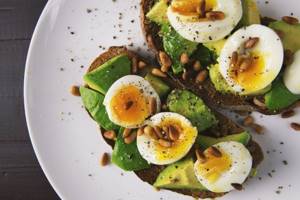
Choose healthy fats and don't confuse them with the trans fats found in burgers and fries.
Best sources of healthy fats:
- Avocado;
- Nuts (almonds, hazelnuts, walnuts and others);
- Flax and chia seeds;
- Oils: coconut oil, clarified butter (ghee), extra virgin olive oil;
- Meat from free-range animals and poultry (preferably);
- Whole-fat country milk (cheeses, yoghurts, milk, if you can tolerate it);
- Village eggs;
- Fish and seafood (eg salmon, tuna, mackerel, sardines). Ideally, avoid farmed fish.
Eat more sources of fiber every day
According to the latest data, we eat about 13g of fiber per day, which is about 2 times less than we need. Fiber deficiency can lead to excess weight, irregular bowel movements, constipation, and high cholesterol.
But eating fiber-rich foods helps us feel full for a long time. In addition, fiber (dietary fiber) helps maintain stable blood sugar levels, which reduces cravings for unhealthy sweets.
According to the recommendations of the Institute of Medicine (USA), women under 50 years old should consume 25g of fiber per day, and women over 50 years old should consume 21g per day. At the same time, we should try to eat more fruits and vegetables (rather than bread and grain products).
It is worth remembering that there is no such amount of fiber that could be toxic to the body. Therefore, the more we eat foods containing fiber, the better!
The main thing is to increase the amount of fiber you consume gradually and drink enough drinking water. This will help you prevent possible constipation and bloating.
Best sources of fiber:
- Starchy and non-starchy vegetables, greens (for example, pumpkin, carrots, potatoes, beets, Brussels sprouts, broccoli, turnips, eggplant, zucchini, fennel, celery and others);
- Fresh fruits and berries (avocado, pears, raspberries, blackberries, persimmons, pomegranates and others);
- Nuts and seeds (almonds, hazelnuts, pistachios, flax and chia seeds, urbech from nuts);
- Cereals (quinoa, buckwheat, brown rice, oatmeal).
Legumes (green peas, beans, chickpeas, lentils, peas, black beans) are also an excellent source of fiber. But many people experience severe bloating from these foods, so their quantity should be very gently and gradually increased in the diet. Better absorption of legumes is facilitated by thoroughly chewing food and drinking enough water throughout the day.
So: Eat a variety of sources of fiber and try to eat 3-5 servings of berries and fruits per day. Fresh fruits and berries are natural sweets; you can eat them after your main meal, when you have a craving for something sweet! Be sure to include plenty of vegetables and crunchy greens in every meal. Add nuts and seeds to salads, main dishes, porridge and green smoothies.
Add protein sources to every meal daily
This is important because protein normalizes blood sugar levels and reduces levels of ghrelin, the hunger hormone. (14), (15), (16)
If you want to cope with cravings for sweets, then protein should be in every meal (breakfast, lunch, snacks, dinner). A particularly strong emphasis on protein should be placed in the first half of the day: eat a large portion of protein for breakfast. For example, you can eat baked fish with a side dish and vegetables. (This may be unusual at first, but it is very effective in overcoming sweet cravings).
Best sources of protein:
- Meat from animals and birds (preferably free-range, grass-fed rather than grain-fed);
- Fish (ideally wild: trout, salmon, pollock, chum salmon, pike perch, mackerel) and seafood (shells, mussels, shrimp, squid, crabs, scallops, octopus);
- 100% natural collagen or pea/hemp protein without additives;
- Village eggs;
- Legumes (green beans, lentils, red beans, black and white beans, chickpeas).
Spend more time walking outside
Fresh air and vigorous physical activity (even walking) will help you get rid of the restless desire to eat something. In addition, full saturation of cells with oxygen will improve your mood and improve metabolism.

Learn to relax
Stress and internal anxiety are the main factors that cause the body to desire more glucose. To relax, you can resort to yoga practices, aromatherapy, choose an intense set of exercises, or simply listen to music.
If you suspect that your condition is becoming depressive, you should visit a psychologist (but under no circumstances prescribe antidepressants for yourself; only a qualified doctor can do this).
Learn to cheer yourself up without food
Try to create a new healthy habit every day. If you are sad, bored or anxious, and your hand naturally reaches for candy or a cookie, try stopping and taking a few deep and slow breaths.
Now think about what else could give you pleasure right now:
- A conversation with a friend or a half-hour walk in the fresh air.
- A bath with candles and aroma oils or a cup of herbal tea with chamomile, lemon balm or mint.
- A glass of cool water or relaxing music.
- Breathing practice or yoga.
- A fiery dance or swim in the pool.
- Appointment with a chiropractor or self-massage.

It is critically important for you and me to learn how to develop new habits and change old ones. I used to treat myself to dessert too and eat sweets when I was nervous. But over time, I changed my mind and was able to “reprogram” my brain. Now my favorite ways to lift my spirits and relieve stress are massage, stretching, yoga, time with loved ones, sleep (yes!) and fun music.
When you want sweets, eat healthy foods
For example, instead of sweets - dried fruits, instead of cake - fruit salad. If you really want, you can allow yourself a small piece of dark chocolate - it contains very little sugar, but it is extremely healthy.
And one more important rule: even consume fruits and dried fruits only after meals and in small portions.
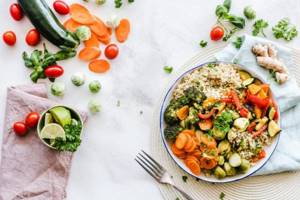
Get rid of the habit of snacking on sweets. Eat healthy foods
When choosing what to eat, give preference to healthy foods: bars of nuts and dried fruits, cottage cheese with fruits, berries or honey, fruit salads, natural juices and smoothies, fresh fruits. You can learn to prepare analogues of industrial sweets from healthy products so that the refusal will be easier: the taste of such food will hardly differ from the usual one, but there will be fewer calories and sugar, and more vitamins and other useful substances.
You should not exclude sweets from your diet immediately, as this can become stressful for the body. It is better to gradually reduce their quantity, find useful analogues for each product that is often found on the menu.
Find an alternative to constantly chewing sweets. Trick your sensory organs
To eat desserts less often, you can use aromatherapy. The smell of vanilla helps a lot: it reduces cravings for harmful foods. You can also use the aromas of your favorite confectionery and chocolate. Aromatic oils and candles, shower gels and other cosmetics are suitable.
You can drink water with a couple of slices of lemon. Liquid will not only prevent overeating, help take up space in the stomach, but will also benefit the body. The skin condition will improve, the immune system will be stronger.
What to do

But don't worry, we have instructions for those suffering:
- Constantly check yourself. Yes, we know how difficult it is to break away from something, but get into the habit of assessing your condition once every 10 minutes: take a deep breath, close your eyes and ask yourself: “Am I comfortable?”
Pay attention to your shoulders - if they are raised, lower them. Analyze the condition of your neck - if it is tense, make a couple of light movements to disperse the blood. If you realize that you are bent over your keyboard, drawing, plate or calculator, straighten up proudly.
Make your own personal posture monitoring checklist and use it at least 10 times a day!
- Go to the doctor. Yes, we know, this is hackneyed advice, but nothing can be done - self-medication is dangerous and even stupid.
- Do an ultrasound of the neck vessels . An ultrasound examination will show whether there are any obstructions in the vessels of the neck that prevent normal blood flow. This will also allow you to clearly examine the condition of the walls of the blood vessels, whether there are any defects in them.
- Do therapeutic exercises. Of course, you need to stretch your neck, but do it gently. We will advise you the following movements:
- Exercises from this article
- Shrug.
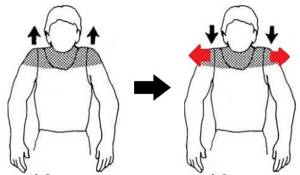
Many of us instinctively raise our shoulders - due to stress, fears, complexes. This exercise will help you reduce the negative impact of this pose on your neck and back.How to do it: Assume a natural posture and take a slow, deep breath into your belly while beginning to lift your shoulders. Continue inhaling as your shoulders rise to their maximum height, and then draw them back. When your shoulders are in their most posterior position, begin exhaling.
Slowly exhaling all the air from your lungs, lower your shoulders, and then bring them forward and up again. From the beginning of a new inhalation, repeat the movements of your shoulders up and back, and then exhale, lowering them down and bringing them forward. These movements must be emphasized, but without pain. Take your time, the slower you do the exercise, the better .
- Looking at the Stars.

Exhaling slowly, with tension, we tilt our head, take a smooth breath and continue moving from bottom to top, to the right, as if we want to look at the starry sky (the right eye and ear are above the left). Delay for 2-3 seconds, then slowly return back and make a similar movement to the left. We do 3–10 such cycles.
- Massage. Be prepared right away that it will probably be unpleasant - eliminating muscle spasms and tension is a difficult task. In this matter, it would be wise to trust a professional. As a rule, movements are carried out in a direction from the head to stimulate venous and lymphatic drainage.
The purpose of the massage is to relax the neck muscles and return the vertebrae that have shifted due to overstrain to their place. By the way, do not be surprised that the doctor will work not only with the problem area, but with the entire body: with the thoracic, lumbosacral spine, muscles in the interscapular area and shoulder girdle, with the feet.
It turns out that even a sprained ankle can cause spasms in the neck muscles and become a source of problems.
- Start visiting the pool. Swimming is like having the cutest girl at the party!
Believe me, this is the most gentle and at the same time the most effective sport. By swimming, you strengthen your muscles, correct your posture, stretch your spine, train your blood vessels and lungs, and actively saturate your body with oxygen. All this has a positive effect on blood circulation and does not injure the joints at all.
- Change your pillow! Yes, orthopedic pillows are more expensive than regular pillows, yes, they can be difficult to get used to - but believe me, this is the best thing you can give yourself!
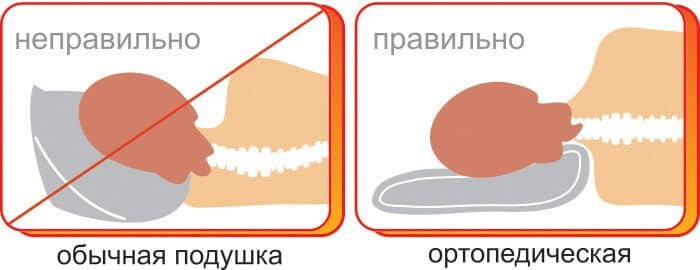
It is an orthopedic pillow (correctly selected) that will prevent pinching of arteries and blood vessels, ensure correct head position and body posture - all this will have a positive effect on the health of your sleep, neck and, as a result, your mood!
Detox diet from sweets for a week for those with a sweet tooth
Is sugar as dangerous as doctors tell us?
Only the lazy don’t know about the dangers of sweets these days! Alas, doctors and scientists only confirm the truth that sugar is harmful. Here is the main evidence for this:
- store-bought “chemical” sweets give the body nothing but sugar and empty calories, while quickly turning into fat reserves on our hips, stomach, and waist;
- excessive doses of sweets lead to the fact that Candida Ablicans, a fungus that feeds on sweets, begins to actively multiply in the intestines; it requires increasingly larger “doses”, simply manipulating you;
- fast carbohydrates (sweets) have a high glycemic index, and give sharp jumps in blood glucose, this leads to real dependence on sweets and puts a strain on the pancreas;
- sugar on teeth is an excellent food for bacteria that secrete substances that destroy tooth enamel;
- and these same bacteria also provoke the appearance of rotting products, and this is a terrible smell from the mouth;
- additives from store-bought sweets are simply dangerous - some can cause allergies, “lock up” the intestines and even provoke cancer.
You cannot exclude: proper nutrition and sweets↑
How to lose weight if you love sweets and can’t imagine your work or school week without your favorite chocolate? Radicals believe: completely remove it from the diet and endure it. The following arguments are given to support the position:
- Refined sugar leads to sudden weight gain and obesity.
- Sweets are addictive: over time you want more and more of them.
- Sweets are useless calories that quickly accumulate on your sides.
- Eating sweets gives an immediate release of the pleasure hormone into the brain, which means it is a bad and harmful habit that should not be indulged.
At the same time, research shows that strict dietary restrictions give only short-term results. People who push themselves into limits have a greater tendency to gain weight after dieting. In this case, usually more is returned than was collected. And it’s not surprising: the body gets used to the fact that its desires can begin to be ignored at any moment, so it tries to get as much as possible at the moment of relaxation, and at the same time accumulate reserves in the form of subcutaneous fat. It will not be possible to completely give up indulgences: there is a high risk of developing irritability, chronic fatigue and depression due to the need to constantly keep oneself in check.
Products that can replace unhealthy sweets
What to eat when you want something sweet? How to replace insidious candies? Perhaps you are not ready for a sudden transition to healthy eating. And don’t go on a diet, even the Kremlin diet is not impressive. In this case, you just need to replace unhealthy sweets with healthy ones.
Here is a list of basic, relatively harmless sweets for you:
- honey - it has many benefits, it will perfectly replace harmful sugar in drinks and baked goods, and a spoonful of honey will discourage you from eating harmful sweets for a long time;
- dried fruits (but not candied fruits) - they are rich in fructose, vitamins, microelements, they can be eaten with tea, added to baked goods, crushed and turned into healthy candies;
- maple syrup - it can be used as an excellent sweetener for tea and baking, it has almost no specific taste, and is rich in nutrients;
- Jerusalem artichoke syrup - provides us with a long feeling of satiety, is safe, as it releases glucose not in the stomach, but in the intestines, contains valuable minerals, organic acids, vitamins;
- dietary desserts - these include baked pears and apples, natural sugar-free marshmallows, jelly and marmalade with fruit puree;
- dark chocolate contains practically no sugar, but it perfectly lifts your mood!
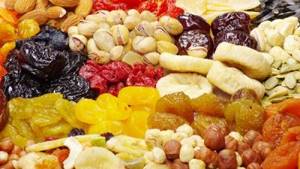
What's important: this list contains sweet treats for desserts. And there are those that replace granulated sugar in tea, coffee, and other drinks. Life gives you many opportunities to make a gentle transition to healthy eating. Use them!
Products to help you overcome your sugar addiction
It turns out that there are foods that “quench” sweet cravings. They will not replace sweets or cakes, of course. After all, they are practically not sweet! But if you use them wisely, you will be much less drawn to unhealthy-sweet foods.
You probably have them at home! Here is their list:
- Cinnamon. This miracle spice helps with diabetes, lowers blood glucose levels, and minimizes sugar addiction. It can be brewed like tea (pour boiling water over it and let it brew). Or you can eat a spoonful of honey with cinnamon, or sprinkle the spice on whole grain bread.
- Carrot. It contains complex carbohydrates that take a long time to digest before turning into sugar. It is best to eat it raw, grated, or adding to salads. Carrot juice or carrot-apple juice works great.
- Pumpkin. Another source of complex carbohydrates and fiber. Pumpkin perfectly stabilizes blood sugar levels, and also helps against parasites in the intestines. Eat pumpkin boiled, baked, or pureed. In winter, when there are not enough vitamins, it is simply irreplaceable. And don't forget about its seeds!
- Stevia is an ideal natural sweetener. It is many times sweeter than sugar. At the same time, it normalizes glucose levels and contains almost no calories. On store shelves you will find stevia in a variety of forms - as powder and syrup. Or even in the form of tablets, similar to a regular sweetener.
- Yam (sweet potato). It is a source of natural sugars and fiber. It takes a long time to digest and contains pectin. It also satisfies hunger perfectly, even if you have a voracious appetite. It can be boiled or baked.
Why do you want sweets?
First you need to find out why you want sweets. There are several reasons for this:
- Chromium levels in the body are particularly important in glucose processing and should be checked.
- During intellectual stress, 20% of the energy taken by the body from glucose is spent on brain function. Due to a lack of necessary substances, a person develops a craving for sweets.
- When you are in a bad mood and stressed, you want to eat candy or a bar of chocolate to get a feeling of joy.
- When PMS occurs, metabolism is disrupted, and many women crave something tasty during this period.
Advice from nutritionists
A visit to a nutritionist is recommended to create a balanced diet. A specialist will help you create a menu with suitable calorie content, protein, fat, carbohydrates, vitamins and minerals. Addressing nutritional deficiencies will help prevent the urge to eat unhealthy desserts.
It is not recommended to replace sweets with industrial yoghurts: these products contain a high content of sugar and other additives. It is better to use natural Greek yogurt as a substitute, to which you can add berries, fruits or a spoonful of honey for sweetness.
Sweeteners are a poor alternative. Many of them are harmful and negatively affect internal organs. It is safe to use only natural ones: stevia, honey, coconut sugar, Jerusalem artichoke syrup.
Sports reduces cravings for sugar. Physical activity stimulates the production of serotonin, and at the end of the workout a person feels pleasure. Exercising also speeds up your metabolism.
What happens if you give up sweets
With a balanced diet, avoiding desserts will not harm the body. Fruits will be sources of glucose; a person will get carbohydrates from cereals, pasta or whole grain bread, and vegetables.
The calorie content of the daily diet will decrease. This will help you lose weight faster. If a person does not need to lose weight, he can replace the “empty” calories from desserts with healthy foods containing vitamins and minerals.
Hormonal levels will return to normal. Rashes will no longer appear on your face, your skin, hair and nails will look better. The psycho-emotional background also stabilizes. People who do not consume sugar are more balanced and cope with stress more easily.
The likelihood of developing diabetes mellitus, pancreatitis, and candidiasis in women is reduced. Girls who do not consume sugar find it easier to get pregnant. During the gestation period, the likelihood of developing diabetes mellitus in the fetus decreases.
Since store-bought sweets often contain dyes, preservatives and other artificial additives that have a toxic effect on the human body, a person who refuses such products becomes healthier. Metabolism accelerates, performance and physical activity increase.
Why are women craving sweets?
Menstruation and menopause
Most representatives of the fair sex are familiar with the irresistible desire to eat chocolate or cake on certain days of the cycle. Usually this is the period several days before and after menstruation. The need for sweets in women these days is explained by hormonal changes and increased consumption of vitamins and microelements.

Addiction to them during menopause is a consequence of decreased estrogen production. This entails a decrease in the level of serotonin in the blood and causes a persistent desire to treat yourself to something sweet.
Pregnancy and lactation
Changing the ratio of sex hormones and the need to increase daily caloric intake during fetal formation or breastfeeding is the main reason for women's addiction to sweets.

If a pregnant woman constantly craves something tasty, nutritionists recommend replacing it with healthier alternatives. This could be fruit, nuts or a small piece of dark chocolate, which are best consumed after meals.

